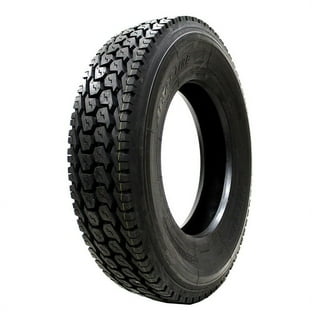Tire Service: Comprehending Tire Stress Surveillance Systems
Comprehending Tire Stress Monitoring Systems (TPMS) is a vital aspect of maintaining optimal vehicle performance and safety on the road. With developments in auto technology, TPMS has become a conventional function in contemporary vehicles, giving real-time information on tire stress levels. Diving much deeper into the intricacies of TPMS, one can reveal the numerous parts that compose this system and the relevance of each in guaranteeing precise surveillance. From direct to indirect TPMS systems, the landscape of tire pressure surveillance varies, each with its one-of-a-kind set of benefits and factors to consider. Stay tuned to unwind the intricacies of TPMS, from upkeep ideas to the obvious advantages of maintaining your tires appropriately inflated. morris tire and alignment.

Importance of TPMS
The importance of Tire Pressure Surveillance Systems (TPMS) exists in their ability to improve vehicle safety and security and performance through real-time monitoring of tire stress levels. Maintaining the proper tire stress is essential for guaranteeing optimal handling, braking, and general safety of a vehicle. TPMS provides drivers with immediate responses on any type of underinflated or overinflated tires, enabling prompt changes to be made.
Elements of TPMS
Sensors are generally situated in the tire valve stem or attached to the wheel assembly, where they determine tire stress and transfer data to the control component. Some advanced TPMS designs likewise show the actual tire pressure analyses for each tire, supplying vehicle drivers with real-time info to make certain optimal tire performance and security. By keeping track of tire pressure continually, TPMS aids prevent mishaps, minimizes tire wear, and improves gas performance, making it a crucial part for automobile safety and efficiency. mopar tire service specials.
Kinds Of TPMS

On the other hand, indirect TPMS depends on the automobile's wheel rate sensors to check tire stress. This system spots underinflation by comparing the rotational speeds of the wheels. Indirect TPMS is less costly than straight TPMS, as it makes use of existing sensing units within the vehicle.
While direct TPMS find more offers more accurate readings, indirect TPMS is simpler in layout and generally requires much less upkeep. Both systems have their advantages and limitations, and the selection in between them often depends on variables such as expense, vehicle make, and personal choice. Recognizing the differences between these 2 kinds of TPMS can help lorry owners make informed choices concerning tire maintenance and directory safety and security.
TPMS Upkeep Tips
Conduct routine checks on the tire pressure levels and contrast them with the TPMS readings to ensure they are consistent. Throughout tire turning or substitute, make certain that the TPMS elements are taken care of carefully to stop any potential damage. If the TPMS advising light brightens on the control panel, resolve the problem immediately by inspecting the tire pressures and the total system for any kind of mistakes.
Benefits of Correct Tire Pressure
Maintaining proper tire stress, as highlighted in TPMS Maintenance Tips, is important for enjoying the many benefits related to optimum tire pressure degrees. One of the primary advantages of preserving the correct tire stress is boosted gas effectiveness. When tires are correctly blown up, there is less moving resistance, resulting in much better gas economic situation. Additionally, appropriate tire pressure ensures even tire wear, extending the life expectancy of the tires and advertising safer driving conditions. With the ideal special info tire stress, lorries likewise have much better handling and traction, especially in unfavorable weather. This can improve total driving performance and safety and security for the motorist and guests. Additionally, preserving optimum tire pressure can add to a smoother and more comfortable ride by reducing vibrations and sound created by underinflated tires. Finally, the advantages of correct tire stress exceed just tire long life; they include enhanced gas efficiency, improved security, far better car efficiency, and overall driving convenience.
Conclusion
In final thought, recognizing tire pressure monitoring systems (TPMS) is critical for keeping optimal tire stress and making sure automobile security. By acknowledging the significance of TPMS, recognizing with its elements, knowing the different kinds offered, adhering to correct upkeep tips, and realizing the benefits of preserving appropriate tire stress, motorists can enhance their driving experience and prolong the life-span of their tires. Proper tire stress is vital to safe and reliable automobile procedure.

Comments on “Discover Top-Quality Tires Morris IL: Choose the very best for Your Vehicle”